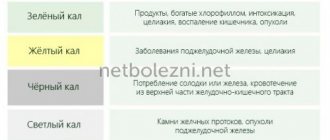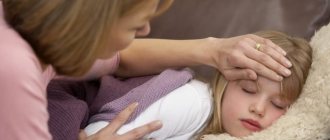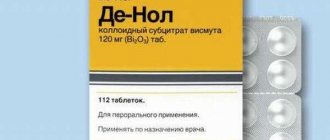A person may suddenly experience frequent bowel movements without diarrhea, in which case the cause of its occurrence becomes unclear. Often the urge to go to the toilet may be false and accompanied by severe painful sensations.
When diarrhea occurs, it is not difficult to find out why it happened. But in the case of frequent urge without diarrhea, determining the cause is quite difficult.
Reasons for frequent bowel movements
There are some reasons why an adult may experience frequent bowel movements, but not diarrhea. Every person should know these reasons so that an unpleasant situation does not arise.
The cause may be inflammatory processes in the rectum, the patient begins to experience quite strong pain and frequent bowel movements. At first, the urge is controllable, but a little later, bowel movements begin to occur involuntarily.
Lack of digestive enzymes
In a large number of people, there is a small production of enzymes (digestive), this deviation is directly related to the disturbances that have occurred in the functioning of the pancreas.
For proper digestion, the body needs a sufficient amount of enzymes. Due to a lack of enzymes, some of the foods consumed are not digested and this provokes frequent visits to the toilet.
Disorders of the gastrointestinal tract
If a person has frequent bowel movements, the reasons may lie in the following diseases:
- gastritis;
- pancreatitis;
- colitis;
- cholecystitis.
A person is tormented by feelings of heaviness in the stomach, flatulence, and this contributes to a frequent urge to go to the toilet.
Irritable bowel syndrome
This disease is quite difficult to identify; often with irritable bowels, a person often feels the urge to go to the toilet immediately after eating. There are times when the patient does not have time to finish the meal when he feels the urge.
With this disease, stool may change its consistency, but loose stools occur infrequently.
Significant fiber intake
When consuming fiber in large quantities, the problem of frequent bowel movements may arise. When you change your diet, the number of daily urges to bowel movement will change.
Raw food diet and vegetarianism
Poor nutrition also causes this unpleasant phenomenon.
If a person consumes a large amount of raw fruits and vegetables, the intestines begin to work much faster and this provokes frequent bowel movements. This problem most often occurs among vegetarians.
For any reason, there is an increase in not only frequent bowel movements and a change in the color, consistency and smell of feces.
Psychological problems
Frequent bowel movements in an adult can occur due to frequent nervous shocks. The nervous system greatly affects the digestive system and people exposed to frequent stress suffer from frequent urge to go to the toilet.
Constant bowel movements may indicate the following abnormalities:
- feeling of fear and being in an unstable emotional state;
- schizophrenia;
- constant stress and irritation;
- a large number of difficulties arising at one time.
If the nervous shocks that have occurred are not resolved in time, the body begins to react inadequately, and the person experiences frequent bowel movements. Often people who take everything to heart in this situation begin to think that they have various diseases and this further aggravates the current situation.
To eliminate this situation, you need to:
- consult a doctor (psychologist) to help get rid of stressful situations;
- Some citizens can take anti-depression pills for a while.
As soon as the problem can be identified and solved, the person ceases to be tormented by constant bowel movements.
Treatment of constipation with drugs
Duphalac is a drug for the treatment of constipation.
Chronic constipation is not treated with strong laxatives and enemas. Such remedies do not help eliminate the cause, but only eliminate the symptom - constipation itself.
Read: Proper treatment of constipation in adults, methods and methods
Suppositories, enemas, and bowel irritant laxatives may be used in rare cases when going to the toilet is simply not possible, or as preparation for medical procedures.
Treatment of constipation is carried out with drugs that have a mild laxative effect, normalize intestinal function, increase the volume of feces and promote regular bowel movements.
- Duphalac or Normaze. Preparations based on lactulose promote regular bowel movements. They are often prescribed to treat chronic constipation in pregnant women and newborns. They are produced in the form of a viscous sweet syrup with a vanilla scent. It should be taken pure or diluted with water once a day. The dose is selected individually. In some cases, lactulose can cause increased gas formation. The drug is not absorbed in the intestine, but increases the volume of stool, making its consistency more liquid.
- Phytomucil. The drug is based on herbal ingredients and contains fiber. It can be taken for as long as you like and for everyone without exception. Does not cause bloating or pain. The drug is available in the form of sachets with crushed substance. The contents of the sachet are dissolved in water and drunk up to 4 times a day. The composition contains only natural ingredients.
- Forlax. The drug Forlax helps cleanse the intestines and improve peristalsis without addiction. It does not contain irritating components and does not cause pain or bloating. The drug contains macrogol, which is completely eliminated from the body without being absorbed.
- Sorbitol. Sorbitol is an active substance that is included in some drugs, for example, Sorbitol. It is used for various purposes, including to improve intestinal function. The drug must be used in a certain dosage, otherwise abdominal pain, cramps, and diarrhea may occur.
- Exportal. Exportal refers to mild laxatives based on lactitol. At first, you may feel bloated, but after the intestines adapt to the drug, the discomfort disappears.
What is the danger of frequent bowel movements?
When a person suffers from frequent bowel movements:
- Microelements and vitamins that are necessary for the normal functioning of the body begin to be released along with feces.
- Anemia or vitamin deficiency develops if the cause is poor enzyme production and the food entering the intestines is not processed.
- If the body does not produce enough bile acid, the number of trips to the toilet begins to increase within 24 hours. The consistency of the feces becomes oily and the color pale.
- If this pathology is not cured as soon as possible, vision may deteriorate significantly, bones will become fragile, and the anus will begin to bleed.
What should you not eat if you have frequent bowel movements?
One of the reasons for frequent bowel movements is poor nutrition. In this case, treatment begins with a detailed analysis of the products consumed.
Products that cause frequent bowel movements include:
- sugar substitutes (artificial), one of the most common additives, the use of which can lead to some problems;
- excessive consumption of dairy products;
- use of foods containing large amounts of fructose in the daily diet.
To get rid of frequent bowel movements, you need to carefully analyze your daily diet.
Until the illness stops, it is advisable to completely exclude from the menu:
- Fried and smoked food.
- Eating food that is too hot can irritate the intestinal walls and cause frequent bowel movements.
This can indicate many diseases.
How to normalize frequent bowel movements?
Before starting treatment, a person needs to identify the reason why this is happening, for this he will need to contact a specialist and conduct an examination. Only after diagnosis can you begin to treat the disease that caused frequent bowel movements.
Treatment is initiated based on the person's daily habits and lifestyle.
To normalize toilet visits you need:
- First of all, try to review the daily menu; You can find out what to eat if you have an intestinal disorder here.
- analyze the foods consumed three days before the start of frequent visits to the toilet.
You can also try introducing the following products into your daily consumption:
- if you eat crackers, you can reduce the number of visits to the toilet;
- you can eat boiled or steamed meat (low-fat varieties);
- broths based on meat or vegetables;
- It is useful for this disease to drink black tea and boiled chicken eggs;
- It is advisable to include low-fat cottage cheese and fish in the daily menu;
- To normalize bowel movements, it is good to use jelly, but only cooked from natural ingredients.
To normalize the amount of enzymes produced, it is necessary to cure pancreatitis; Mezim and Festal are widely used for this. For treatment, you must strictly adhere to the indicated dosage and follow all doctor’s recommendations. Often, a course of medication is no more than two weeks, but before prescribing the course duration, the doctor looks at the patient’s condition.
If the cause of frequent bowel movements is colitis, then you must:
- Take antibacterial medications.
- With their help, you can suppress pathogenic microorganisms that develop in the intestines.
- The doctor prescribes the required dosage based on the patient’s well-being.
In the case of chronic gastritis:
- Gastritis develops due to infection caused by the bacterium Helicobacter pylori.
- It can also occur as a result of other stomach-related diseases.
- To treat gastritis, the doctor prescribes antibiotics to the patient.
When taking antibiotics, the intestinal microflora may be disrupted and, as a result, dysbiosis occurs. Due to a lack of beneficial bacteria, a person begins to have frequent bowel movements. To restore the microflora, the patient needs to take probiotics and after some time the stool will normalize and the formation of gases will decrease.
To treat bowel irritation:
- It is necessary to select drugs based on the individual characteristics of the patient’s body.
- If the cause is nervous tension, then the person needs to take medications for depression.
- It is also advisable to visit a psychologist and use physical exercises.
If a person begins to have problems with stool, he goes to the toilet very often, then he needs to:
- Consult a doctor to identify the true cause of this phenomenon.
- First, you need to review your diet and eliminate foods that can cause frequent bowel movements.
- In addition, it is necessary to try to eliminate all the reasons why a person experiences nervous tension, visit a psychologist and take medications for depression.
Features of the treatment of frequent bowel movements
Treatment is carried out after diagnosis and identification of the culprit of intestinal disorders. An examination is not enough for a doctor to make a diagnosis. It is necessary to undergo a set of laboratory tests to detect the presence of bile, pieces of food, blood, and other inclusions in the stool. Based on the results obtained, the doctor develops a set of therapeutic measures, including taking medications and following a diet.
Pharmacy drugs
Prescription of medications for adults is carried out in accordance with the identified problem.
When pancreatitis, gastritis, and other diseases are detected, the drugs Festal, Pancreatin, and Mezim are prescribed. The course of treatment lasts from 1 to 2 weeks. Enough to normalize the functioning of the pancreas.
If diarrhea occurs due to colitis, antibiotics are recommended. Popular drugs are Terramycin and Polymyxin.
If the correct microflora is disturbed, it is necessary to take probiotics to eliminate gas formation, bloating, nausea, and form proper stool. They use Bifidumbacterin, Linex.
For psychological reasons for frequent bowel movements, Drotaverine and Papaverine are prescribed to eliminate spasms. Alosetron and Trimedat will help normalize the intestines. The work of a psychologist is of primary importance.
Changing food
To normalize the functioning of the digestive tract, stool in adults, and get rid of diarrhea, a diet is introduced, followed by drug treatment. Changing habits and nutrition consists of:
- Replace bread with crackers. Allows you to strengthen the intestinal walls.
- The broths are not strong; cook with dietary meat and light vegetables.
- Lean meat and fish. Steam food, stewing and boiling are allowed.
- Drink strong black tea without adding honey or sugar throughout the day.
- It is recommended to eat boiled eggs regularly.
- It is necessary to remove products that cause fermentation.
- Eat a small portion of low-fat cottage cheese every day.
- Drink plenty of water.
- Avoid dairy products if you are intolerant.
- Don't eat fatty foods. It causes the release of bile.
- Drink jelly made from natural fruits. Powder is prohibited; it may aggravate diarrhea.
Too hot food does not have the best effect on the stomach; it is recommended to wait until it cools down to a warm state.
Do not self-medicate frequent bowel movements. You can reduce the daily amount of food.











